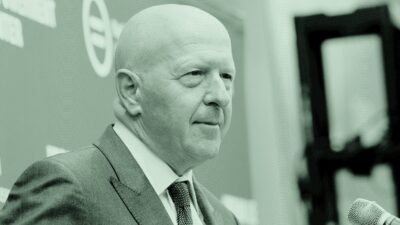Women Stand to Inherit Trillions of Dollars. They’re Still Underserved
Targeted marketing and tailored communication can build loyalty.

Sign up for market insights, wealth management practice essentials and industry updates.
Savvy financial advisors can help women invest their wealth and increase their client base. So, why are women still so underserved by wealth managers? Communication.
Part of the issue is that women are simply more hesitant to seek advice, according to a recent survey by Capital Group of over 1,500 U.S. consumers with at least one investment account. More than a quarter (26%) of women feel they lack sufficient funds to work with an advisor, and women are less likely to seek financial advice after major life events, despite being more open to advice than men. The findings aren’t a surprise for many financial advisors who have significant female client bases, either. While it has become common for financial advisors who have married clients to invite both spouses to the meeting, they may not speak equally to both if one of the spouses is a woman.
Megan Miller, senior wealth advisor at MAI Capital Management, said she had one ultra-high-net-worth client who would sometimes leave advisor meetings in tears. If the advisors didn’t talk down to her, they wouldn’t address her in meetings, so she stopped going. “I was like, ‘I don’t blame you,’” Miller said. Many women are also likely to become “double inheritors” as more than $100 trillion is transferred from older generations by 2048, according to Cerulli Associates. The research shows they’re loyal, too, with 76% of women continuing the relationship with their advisor into retirement, versus 66% of men.
Peer Pressure
Advisors who serve women clients say they use a different approach than what much of the industry has traditionally relied on, like simply going through a checklist of products, or trying to make a sale at the first meeting. Instead, high-touch service and listening to women’s concerns are ways to build a sustainable business, experts said. The survey gives four key suggestions:
- Focus on marketing online and through women’s social networks.
- Make sure to appeal to financial aspirations.
- Communicate the value of advice over cost.
- Ensure all client communication is done thoughtfully.
Sequoia Financial Group advisor and CFP Nikki Savage said women are used to being talked down to, so creating a space that allows them to discuss any topic, not just finances, builds trust. Sequoia has peer circles, small groups of women in similar fields, who gather to talk. There are no slide decks or lectures, but as conversations continue, women feel more comfortable speaking about finances.
“If you want to put a normal business term on it, this sales cycle is a bit longer,” Savage said. “But when your clients are in these peer groups and their peer circles, and they’re really loving the content and the community that you’re building, they’re going to refer you for the rest of their life — any time a girlfriend from their church, or group, or work, or relative needs someone.”
Don’t Hate, Appreciate. Client appreciation days can be ways to tap into women’s social networks, said Melissa Barkley, a wealth advisor with Linscomb Wealth. She and another advisor at Linscomb Wealth, Sheri Robinson, hosted a small women-clients-only spa day, and participants were encouraged to bring a friend. Financial planning wasn’t discussed, but it was an opportunity to get to know the friends of the clients. That has turned into at least one new client.
MAI’s Miller said educational events are another opportunity. Her firm has found success through hosting events tied to charitable giving and inviting local charities, such as the Humane Society, to the office to talk about their work in the community. The firm pairs it with estate planning, highlighting donor-advised funds or charitable remainder trusts.
“It was a low-pressure, low-expectations way to discuss what’s out there,” Miller said, adding that sessions on ESG companies are also popular. “We love to do fun events, too, and they are truly not meant to be marketing points of view. They’re just because we care about our clients. We want to spend time with them,” she said.
Time the Marketing. Targeted online marketing can be an effective tool as well. Capital Group senior vice president Wassan Kasey said one surprising finding in the survey is that more than 20% of women find their advisors online through search engines.
Miller said MAI advertised an educational seminar around divorce-planning for women, which she said is a “wildly underserved market.” The seminars were priced low, around $30 for a four-hour session with a financial advisor, attorney and a therapist. Miller estimates about 75% of the women they saw became clients. Educational seminars can be a way to show value over cost, but there are other ways as well.
At introductory meetings, Linscomb Wealth advisors look at potential clients’ assets and help to create a balance sheet, Barkley said. People often don’t realize what they have, she added. “Until they see it on paper, they’re like, ‘Oh my gosh, it said $2 million or $3 million.’ That’s a need. If you don’t know what you have, we’ve added value right there. And they’re not even clients,” she said.
Whoever, Whenever. Contrary to what advisors think, Kasey said, the survey showed that women are comfortable with male or female advisors, and they aren’t necessarily motivated by life events. Appealing to financial freedom or independence, rather than just life events, can encourage women to invest. She said going beyond surface-level questions and listening to answers can help deepen relationships.
For example, rather than asking why a client wants to retire in a certain part of the country and the timeframe for a move, consider questions such as where their children or grandchildren may be living, and how they will visit family and the potential costs around that. Those questions can unlock parts of a goal they might not have considered.
“Journey-mapping … can more meaningfully get at the heart of the goal,” she said.
Sequoia’s Savage said thoughtful communication matters because women haven’t trusted financial advice in the past. Engaging on a deeper level builds trust. “There’s some mistrust when it comes down to their financial independence… but now we’re talking about something that’s critical to them being OK for the rest of their lives,” she said. “So the estate-planning, the ABCs (of investing) are really powerful.”











